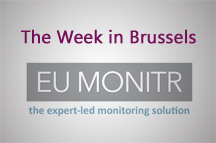 This week has seen some interesting developments in Brussels, especially in the health sector. Following the publication of the 2015 work plan for the 3rd Health Programme last week, the European Commission has published a Call for Proposals of Projects. The 3rd EU health programme is the main EU funding instrument to support the development and implementation of EU health policy. The programme is implemented through annual work programmes which set out priority areas and criteria for funding actions. The total budget for the programme is €449.4 million.
This week has seen some interesting developments in Brussels, especially in the health sector. Following the publication of the 2015 work plan for the 3rd Health Programme last week, the European Commission has published a Call for Proposals of Projects. The 3rd EU health programme is the main EU funding instrument to support the development and implementation of EU health policy. The programme is implemented through annual work programmes which set out priority areas and criteria for funding actions. The total budget for the programme is €449.4 million.
The €9 million allocated to this call will be divided into five topics; 1) the alcohol strategy, 2) treatment of hepatitis, 3) tuberculosis, 4) integrated care, frailty prevention, adherence to medical plans and age-friendly communities and 5) transplantation therapies.
Having worked with many organisations that rely on EU funding, I know that the 15 September deadline for submission will keep them very busy this summer! Finding partners and co-funding is a big job but the paperwork associated with an EU proposal is something to reckon with. Hopefully this will be looked at as part of the Commission's lighter-regulation initiatives.
In other news, this week has seen a series of developments highlighting the increasing discomfort regarding the medical brain drain experienced by Eastern European countries. A recent survey ran in Hungary found that 30 to 40% of the students in medical schools want to get jobs abroad as soon as they graduate. Faced with this costly drain, Eastern European MEPs are taking action. On Thursday MEP Victor Negrescu (S&D, Romania) met with Health Commissioner Andriukaitis to discuss the creation of a working group on the “medical professionals exodus from Central and Eastern Europe”. In parallel to this, MEP István Ujhelyi (S&D, Hungary) tabled a parliamentary question asking the European Commission for measures to improve the situation and pinning the blame on the low wages for healthcare staff in Eastern European countries.
Of course this is all taking place at the same time David Cameron was having face-to-face meetings with EU leaders in Brussels to discuss his plans to strip welfare from migrants. Although these were rejected by the leaders of Spain, Belgium and Finland, I wonder what Central and Eastern European leaders will think about this; could he find an ally in them to support his migration reforms? We’ll have to wait until the 26 June European Council to get a flavour of things to come.
If you would like to keep you or your clients updated with EU health policy, EU Monitr could be your solution. We are a startup that provides a subscription-based monitoring solution curated by EU health industry experts. We cut through the noise and deliver the right information in an innovative, user-friendly way. You can sign up to our free newsletter here.














